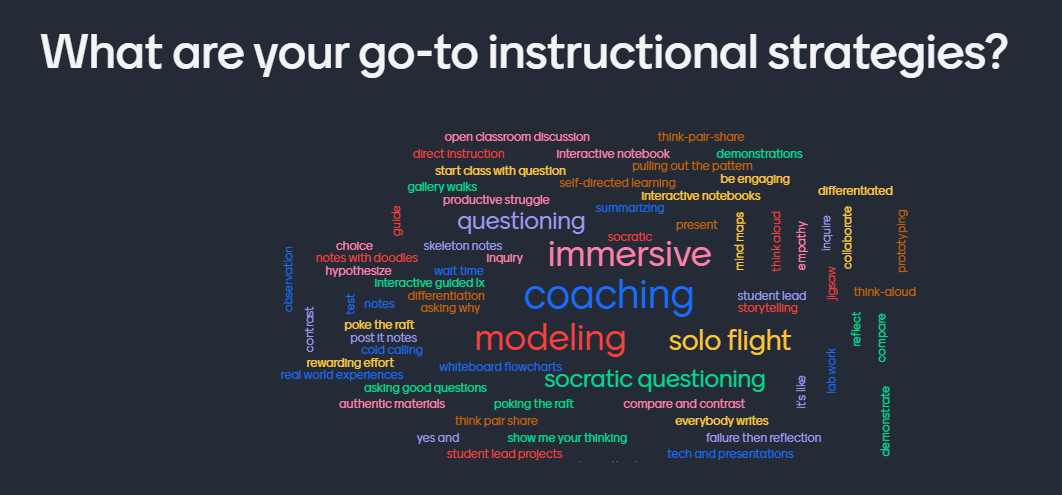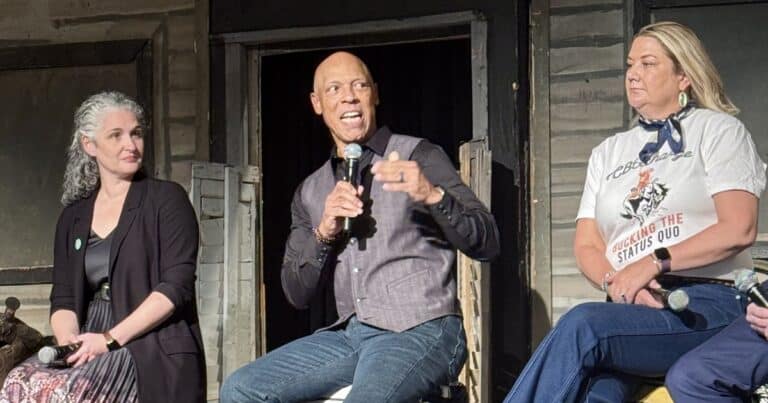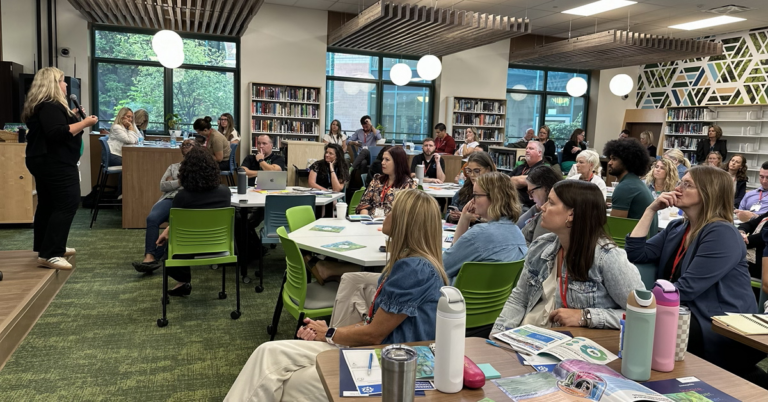By Dr. Krista Primrose
Purdue Polytechnic High School (PPHS) in Indianapolis, Indiana is revisiting their foundational instructional practices to further their collective efficacy as a staff. They are asking:
- What are our go-to instructional strategies?
- What strategies could we add to our toolbox?
The answers will serve as the basis for what PPHS calls Immersions. Immersions are meant to fully engage students in core academic content area learning opportunities while ensuring students actively participate, construct and contribute to the learning process in ways often lost in a traditional classroom setting. Most commonly, Immersions take the form of an objective-driven project or experience facilitated by a content expert called a coach. Referring to teachers as coaches is intentional, because PPHS is fully committed to providing students an environment in which to develop personal agency and self-directedness – to be the key players, if you will – and key players need coaches coming alongside them rather than traditional instructors coming at them.
The strategies they identified were:
- Coaching and feedback. According to John Hattie, “feedback is most powerful when it is from the student to the teacher. What they know, what they understand, where they make errors, when they have misconceptions, when they are not engaged – then teaching and learning can be synchronized and powerful. Feedback to teachers makes learning visible.”
At PPHS, this is especially true when students demonstrate their learning in hands-on ways, by implementing coach-supervised processes and using these process skills to create products that demonstrate knowledge construction and application. These moments provide insight into each student’s progress toward mastery and allows coaches to identify coaching opportunities to enable students to master the skills that will make them successful.
- Instructional strategies from Marzano and Hattie. What the research says about instruction helps educators incorporate research-verified strategies into their personal coaching practices, increasing student engagement and learning while maintaining a coaching mindframe and approach to working with students.
- Helping students construct personal knowledge in a standardized world. Constructivist instructional models offer a method of designing learning experiences that embrace starting “with the big idea” and letting the discovery of facts, rules, skills, etc. come from within this larger real-world concept. For example, process, not product emphasizes coaching students to become great learners and thinkers, and predict-observe-explain is a coaching strategy that identifies prior knowledge and builds entry points for new learning.
- Partnering with learners to co-design instruction. How do we partner with our learners in designing learning to increase ownership and student agency?
Inventorying one’s go-to instructional strategies and viewing them through the lens of established best practices allows educators to highlight their areas of excellence; gut-check that common practices are consistent with a school’s mission, vision and values; and also to identify opportunities to continue to grow.
For more resources on coaching and feedback:
- Delaying the Grade: How to Get Students to Read Feedback
- Students Learn More When THEY Do the Work
- Student Feedback and Reflection
For more resources on instructional research:
- Visible Learning Infographic
- Glossary of Influences on Student Achievement
- Educator Competencies for Personalized, Learner-Centered Environments
For more resources on co-designing learning:
Dr. Krista Primrose is the director of curriculum of Purdue Polytechnic High School, working closely with school leaders and coaches to plan and implement an innovative curriculum that removes educational barriers while ensuring students master academic content while engaged in authentic project-based learning experiences.





